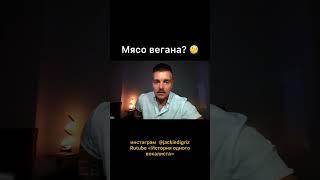
Alan Piper: Bicycle Day: An Alternative View. Breaking Convention 2023
It was the morning of April 19, 1943, and somewhere in Europe on that day a man was in for the shock of his life. SS-Brigadeführer Jürgen Stroop had arrived at the Warsaw Ghetto to supervise the orderly evacuation of over 13,000 Jews from the Ghetto, for transport to the extermination camps. To his surprise his men were met with petrol bombs and submachine gun fire. Unknown to Stroop the Jews of Ghetto had formed resistance groups and secretly armed themselves. Stroop was dismissed and it took a month to clear the Ghetto. April 19, 1943, celebrated as Bicycle Day has a mythic status in the history of LSD, as the birth story of a drug that has a had a cultural resonance across the world. As usually narrated it has a fairy tale quality, taking place in cheerful isolation from world events and other cultural developments of the time. The Swiss science of pharmacy goes back the appointment of Paracelsus to the University of Basel and Hofmann was a product of an unacknowledged Nobel prize winning phytopharmaceutical dynasty, a pedagogical succession reaching back to the nineteenth century and beyond. The real story behind Bicycle Day is much more complex than a cartoon of a man, high on LSD, on a bicycle in the land of cuckoo clocks suggests. On Bicycle Day Sandoz was operating under wartime conditions and was morally compromised by its manufacturing operations that continued in Nazi Germany, for which Novartis later paid reparations. Compliance with the required Aryanisation of its German work force damaged a lifelong scientific friendship within Sandoz. On the other hand, both Arthur Stoll, the Director of Sandoz and Albert Hofmann were men of culture as well as scientists. Stoll’s close friendship with Hermann Hesse and as an important collector of modern art places him in a milieu of the early twentieth century Swiss mystical avant-garde. Albert Hofmann established himself at the centre of an occultic circle of publishers, authors, and medical and orientalist experts that Timothy Leary called an informal wisdom school. These facts may explain rumours that LSD was the product of an occult plan to save the world by followers of Rudolph Steiner at Sandoz. This paper will illuminate the neglected cultural and political background to the event popularly known a Bicycle Day.
BIO
Alan Piper graduated in the History of Ideas in 1986 as a mature student. Having participated in the psychedelic sixties and seventies, Alan later applied himself to the history of psychedelic culture. He has published several papers on the cultural history of psychoactive drugs, with a special emphasis on the inter-war period. Alan first spoke at Breaking Convention in 2013 on ‘Psychedelics, Fascism and the Politics of Profane Illumination’, explaining how both left- and right-wing figures have found inspiration in the powers of psychoactive drugs. In 2015 he spoke on ‘Psychedelics, Transgression and the End of History’, looking at how the transgressive power of psychedelic drugs was used by the counterculture as a tool of resistance against the dominant culture of consumer capitalism and militarism. In this context he asked whether, through the ongoing processes of medicalisation and commodification of psychedelics, they would lose the transgressive and disruptive power that had previously characterised them. This year Alan will examine the unacknowledged greater social and political context of Bicycle Day, separating comforting myth from the complexities of history.
Many thanks to Kiefer Passey for filming and editing this talk
https://kieferpassey.co.uk
BIO
Alan Piper graduated in the History of Ideas in 1986 as a mature student. Having participated in the psychedelic sixties and seventies, Alan later applied himself to the history of psychedelic culture. He has published several papers on the cultural history of psychoactive drugs, with a special emphasis on the inter-war period. Alan first spoke at Breaking Convention in 2013 on ‘Psychedelics, Fascism and the Politics of Profane Illumination’, explaining how both left- and right-wing figures have found inspiration in the powers of psychoactive drugs. In 2015 he spoke on ‘Psychedelics, Transgression and the End of History’, looking at how the transgressive power of psychedelic drugs was used by the counterculture as a tool of resistance against the dominant culture of consumer capitalism and militarism. In this context he asked whether, through the ongoing processes of medicalisation and commodification of psychedelics, they would lose the transgressive and disruptive power that had previously characterised them. This year Alan will examine the unacknowledged greater social and political context of Bicycle Day, separating comforting myth from the complexities of history.
Many thanks to Kiefer Passey for filming and editing this talk
https://kieferpassey.co.uk
Комментарии:
Alan Piper: Bicycle Day: An Alternative View. Breaking Convention 2023
Breaking Convention
The Story of the Ant and King Solomon
Naseeha Studio
24 hours in London - WEST END version
Maddy Lucy Dann
Sh•t Canadian Beauty Bloggers Say
Holly Housewife MUA
How Things Are ACTUALLY Made
ReactionHacks
5 Best Online Colleges for Busy Adults (2023)
College Hacked
funbunch celebration
funbunch2000


























